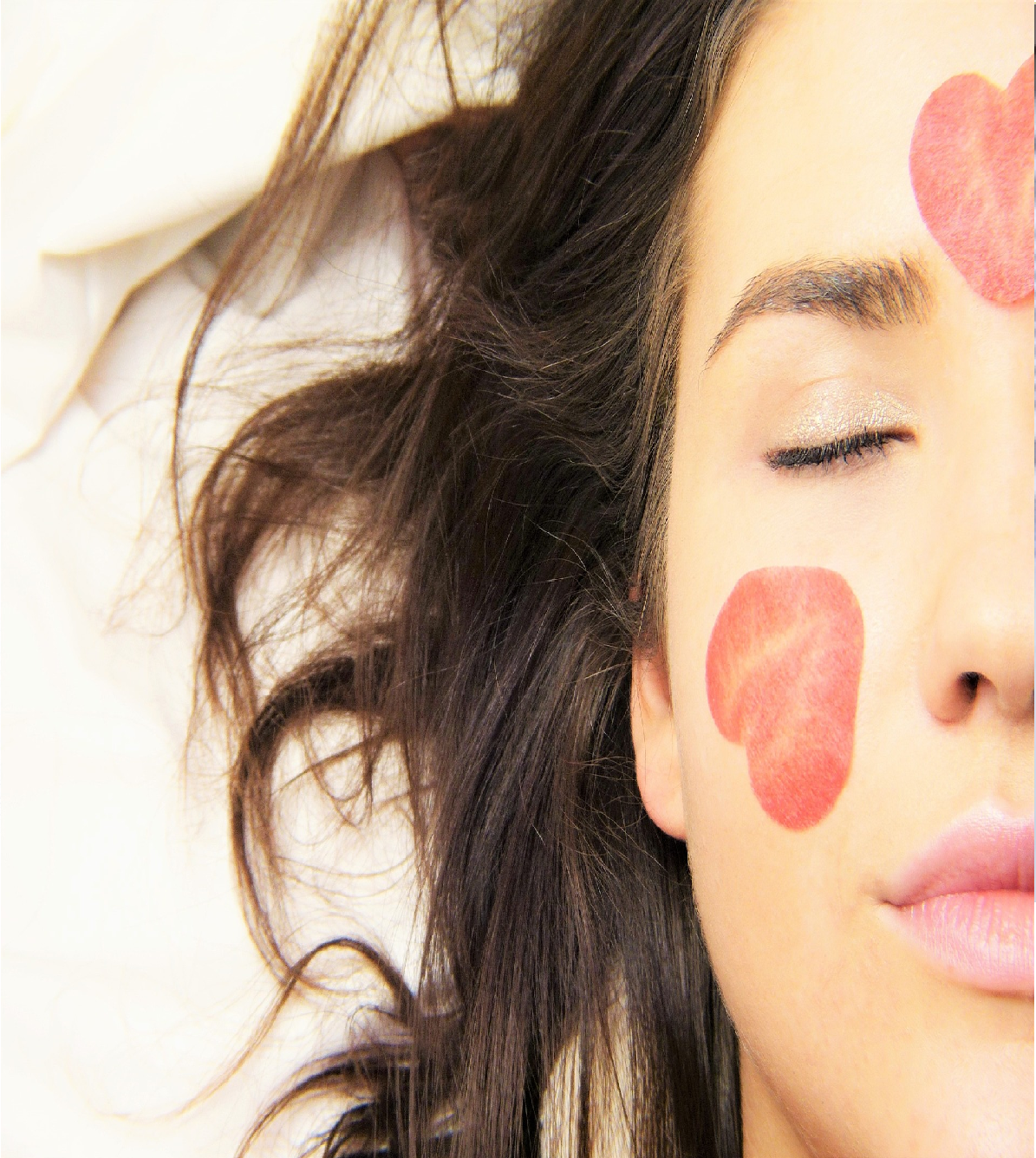A Basic Skin Care Routine For Glowing & Healthy Skin is the foundation of achieving a radiant and youthful complexion. In today’s fast-paced world, our skin endures constant exposure to pollutants, harsh weather, and stress, making it essential to adopt a simple yet effective skincare regimen. A consistent routine can help maintain the skin’s natural glow while addressing common concerns like dryness, dullness, and uneven tone. This guide to a basic skin care routine emphasizes the importance of cleansing, moisturizing, and protecting your skin with SPF, alongside a few nourishing habits like hydration and a balanced diet. Whether you’re new to skincare or looking to simplify your existing routine, this approach focuses on easy-to-follow steps that work for all skin types. With minimal effort and maximum results, this routine paves the way for glowing, healthy skin that radiates confidence and beauty every day.
BASIC SKINCARE ROUTINE FOR GLOWING & HEALTHY SKIN
HERE ARE SOME TIPS TO MAKE SKIN HEALTHY.
FOLLOW THESE TRUST ME YOU WILL LOVE YOUR SKIN
-
Know Your Skin Type
- Oily: Skin feels greasy, shiny, and prone to acne.
- Dry: Skin feels tight, unpleasant, and flaky.
- Blend: Slick in certain region (generally the T-zone) and dry in others.
- Normal: Well-balanced, not too oily or dry.
Understanding your skin type is critical to picking the right items and schedule.

2.Cleanse Daily
- Cleanse your face twice a day (morning and night) to remove dirt, oil, and impurities.
- Use a mild, sulfate-free cleanser fit to your skin type. (oily, dry, combination, or sensitive).
- Over-purifying can strip the skin of its normal oils.

-
Exfoliate Regularly
- Gently exfoliate once or twice a week to remove dead skin cells, but avoid over-exfoliating which can cause irritation.
- Choose a physical or chemical exfoliate based on your skin’s sensitivity.
- Avoid harsh scrubs; choose chemical exfoliates like AHAs or BHAs, depending on your skin sensitivity.
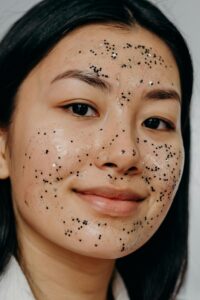
-
Moisturize
- • Hydrate your skin with a lotion fit to your skin type. Even oily skin needs moisture.
- For dry skin, opt for a thicker cream; for oily skin, use a lightweight, oil-free moisturizer.
- Apply a good moisturizer to lock in hydration.

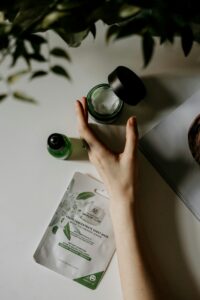
-
Apply Sunscreen Daily
- Use a broad-spectrum sunscreen with at least SPF 30 every day, even in cloudy weather.
- Reapply every 2 hours if you’re outdoors, and don’t forget to protect your neck, hands, and other exposed areas.

-
Stay Hydrated
- Drink a lot of water over the course of the day to keep your skin hydrated from the inside.
- • Eat food varieties wealthy in water content like cucumbers, watermelon, and oranges.
- Herbal teas and water-rich foods like fruits also help.

-
Avoid Touching Your Face
- Keep your hands off your face to avoid transferring oils, bacteria, and dirt, which can lead to breakouts.
- Your hands carry bacteria, dirt, and oils, which can cause breakouts or irritation if transferred to your face.
- If you must touch your face, ensure your hands are clean.

-
Remove Makeup Before Bed
- Never sleep with makeup on, as it can clog pores, cause breakouts, and dull your complexion.
- Use a gentle makeup remover or cleansing oil to fully remove makeup.
-
Use Targeted Treatments
- For acne, dark spots, or aging, use products with active ingredients like salicylic acid, retinol, or vitamin C.
- Be patient; it may take time for treatments to show results.

-
Get Enough Sleep
- Aim for 7-9 hours of sleep per night. Lack of sleep can lead to dull skin, dark circles, and breakouts.
- Sleeping on a clean pillowcase and avoiding sleeping on your face can also help.
- Use a silk or satin pillowcase to reduce skin irritation.

-
Manage Stress
- High stress levels can trigger breakouts and other skin issues like acne or eczema. Practice stress-relieving techniques like meditation, yoga, or deep breathing.


-
Eat a Balanced Diet
- Include fresh foods like fruits, vegetables, lean proteins, and healthy fats in your diet to support your skin from the inside.
- Foods rich in antioxidants, like berries and leafy greens, are great for skin health and omega-3 fatty acids (like salmon, flaxseeds).
- Keep away from unnecessary sugar and handled food varieties, which can add to breakouts.
- Keeping away from fast food or junk food is crucial for maintaining healthy skin. These food sources are many times high in unhealthy fats, sugars, and refined carbs, which can lead to breakouts and dull complexion.
- Consuming too much processed food may increase inflammation in the body, deteriorating skin conditions like acne. Instead, focus on a balanced diet rich in fruits, vegetables, and whole grains to nourish your skin from within. Healthy eating habits can promote clearer, more radiant skin over time.
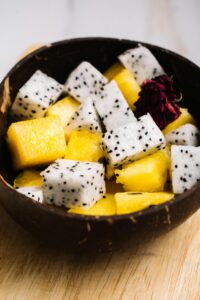

-
Limit Hot Water Exposure
- High temp water can strip the skin of its normal oils. Utilize tepid water while cleaning up and showering.
- Moisturize right after to lock in hydration.

15.Dip Your Face In Cold Water
- Dipping your face in cold water can have several benefits for your skin.
- Cold water helps to tighten pores, reduce puffiness, and increase circulation, giving your skin a refreshed appearance.
- It can also calm inflammation and soothe redness, making it helpful for sensitive skin.
- Additionally, cold water can improve the skin’s natural glow by boosting blood flow. However, it’s important not to overdo it, as excessive exposure to cold water can cause dryness

-
16. Consult a Dermatologist
- If you have persistent skin concerns like acne, eczema, or severe dryness, seek professional advice from a dermatologist.
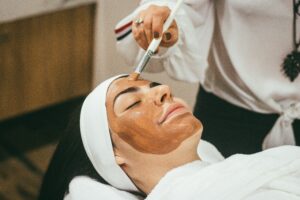
Following these simple skincare steps will help maintain a healthy, radiant complexion over time. With a consistent skincare routine tailored to your needs, you can maintain radiant, healthy skin.

